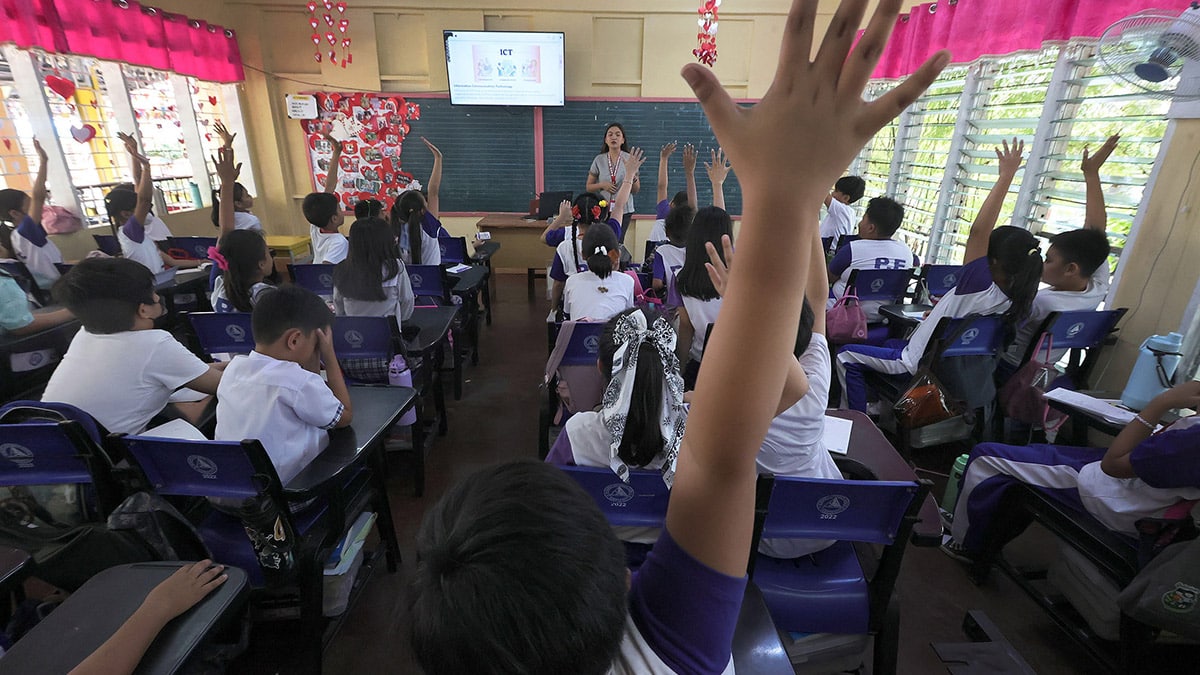DepEd eyes new learning model to boost mental health program

CURRICULUM TWEAKING The Filipino Social and Emotional Learning competency framework identifies the social and emotional competencies all students should learn to achieve their life goals. —Grig C. Montegrande
MANILA, Philippines — The Department of Education (DepEd) is looking into enhancing its mental health programs in the K-12 curriculum by integrating a learning model on emotional and social competencies that Filipino students need before they join the workforce.
Called the Filipino Social and Emotional Learning (SEL) competency framework, the model was developed by ChildFund Philippines, a nongovernmental organization (NGO).
“The SEL framework will serve as a blueprint right now in terms of not only the curricular aspect, but also the support services rendered to schools. More so now that we are rapidly expanding our mental health program intended to address not only bullying, which is only a small issue in the greater discussion of mental health,” Education Assistant Secretary Dexter Galban explained in an interview.
READ: Preventing a mental health crisis
ChildFund education specialist Marlene Floresca said the SEL framework identifies the social and emotional competencies all students should learn to be able to achieve their life goals.
Article continues after this advertisementShe added that based on the framework, each one must develop the values of “pagpapakatao” (being humane) and “pakikipagkapwa-tao” (fellowship) in order to grow up as “batang mahusay at may tiwala sa sarili at kapwa” (a capable child with trust in one’s self and others).
Article continues after this advertisementCompetencies
Floresca identified six general SEL competencies through which students could improve themselves:pagkilala sa sarili” (knowing oneself), “pamamahala sa sarili” (self-care), “pagiging responsable” (being responsible), “pagsisikap” (industry), “pakikisama” (getting along with others) and “pagmamalasakit” (compassion).
“Researches have shown that social and emotional learning promotes good social behavior,” she said, adding that a further localized SEL framework seeks to promote behaviors that combat bullying and aggressive interactions with one’s peers and even with family and community members.
In developing that model, ChildFund interviewed K-12 and Alternative Learning System students in six areas—Metro Manila and the provinces of Apayao, Negros Occidental, North Cotabato, Sulu and Tawi-Tawi.
For that endeavor, the NGO partnered with the education advocacy group Southeast Asian Ministers of Education Organization-Regional Center for Educational Innovation and Technology (Seameo-Innotech).
Former Education Secretary Leonor Briones, director of Seameo-Innotech, cited bullying as among the mental health issues that students and teachers need to address.
‘Bullying hot spots’
DepEd monitored physical bullying in the majority of the 7,742 cases logged in the school year 2022-2023. Other forms of bullying were social bullying (1,742), cyberbullying (1,137), and gender-based bullying (590).
According to a study this month by De La Salle University and the Second Congressional Commission on Education (Edcom 2), bullying among students was more common in public schools with large class sizes and students from lower socioeconomic backgrounds.
The study identified the regions of Caraga and Mimaropa as “bullying hot spots,” or those with the highest incidence of bullying in the country.
The Programme for International Student Assessment (Pisa), in its 2022 study, showed that one out of three Filipino students encountered bullying at least once a week.
It said that by gender, 43 percent of female students and 53 percent of male students experienced bullying several times a month.
Galban cited the need to tackle the bullying problem since most employers—from what he observed at a recent career expo organized by DepEd—were looking for emotional skills now “being advocated [through] the SEL framework.”
“These are not soft skills, … but essential skills, the capability to maneuver the workplace when there is pressure and disruptions,” he said.
Emphasizing that students come from different socioeconomic backgrounds with varying levels of support, he said the SEL model “allows them to gain essential skills … when they become part of the job market once they emerge from the K-12 program.”